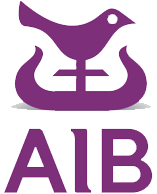Autumn Budget: what it could mean for you
5 key takeaways from the Autumn Budget and Spending Review
As we hear that the economy is expected to return to pre-pandemic levels at the beginning of next year, the chancellor delivers his spending and taxation plans in his Autumn Budget. Let's look at some key takeaways.
- 01
The Office for Budget Responsibility (OBR) predict the economy willl recover quicker than was expected, with a growth forecast of 6.5% for this year and 6% for 2022. The OBR also downgraded the economic impact of COVID from 3% to 2%, and its unemployment forecast from 12% to 5.2%.
- 02
The OBR have forecast that inflation could hit an average of 4%. This led to the chancellor announcing a a range of measures aimed at managing the cost of living including an increase in the minimum wage, a reduction in the Universal Credit taper, continuation of the fuel duty freeze and an overhaul of alcohol duties.
- 03
The chancellor pledged an increase in the "block grant" for devolved administrations, as well as allocating the first round of bids from the levelling-up fund and billions of pounds of spending on transport infrastructure, bus services and road upgrades, particularly outside of London.
- 04
In a bid to support sectors hit particularly badly by the pandemic, the chancellor announced a 50% business rates discount for retail, hospitality and leisure sectors, as well as a cut in Air Passenger Duty on domestic flights.
- 05
The spending review was relatively light on climate change. In fact, many campaigners accused the government of being anti-green as a result of announcements made regarding a continued fuel duty freeze and reduction to domestic flight Air Passenger Duty.
Raising a glass, but not duty
The chancellor billed this as "the most radical simplification of alcohol duties for 140 years". The new system will come into effect from February 2023, and is based on the principle of the stronger the drink, the higher the rate.
To find out how this, and other changes to the cost of living will affect you, check out this handy Budget Calculator on the Guardian website.
Key budget announcements
Pay & benefits OpenClose
National living wage
Work allowance
Transport OpenClose
Fuel duty
Air passenger duty
Roads and railways
Education & skills OpenClose
Adult education
Funding for schools
Start for life
Business OpenClose
Business rate discount
Business rate multiplier
Business rate exemptions
Housing OpenClose
New, affordable housing
Property developer levy
Tackling homelessness
National living wage to rise to £9.50 per hour
From April 2022, the national living wage will rise by 6.6% to £9.50 an hour for those aged 23 and over. The rise means a full-time worker will get £1,074 extra a year before tax.
You can find more details on changes to national living wage in this BBC article.


